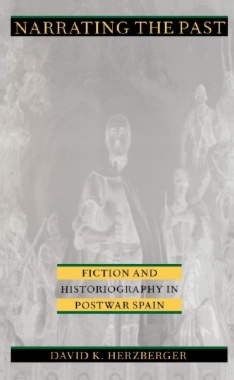The relationship between fiction and historiography in Francoist Spain (1939–1975) is a contentious one. The intricacies of this relationship, in which fiction works to subvert the regime’s authority to write the past, are the focus of David K. Herzberger’s book.
The narrative and rhetorical strategies of historical discourse figure in both the fiction and historiography of postwar Spain. Herzberger analyzes these strategies, identifying the structures and vocabularies they use to frame the past and endow it with particular meanings. He shows how Francoist historians sought to affirm the historical necessity of Franco by linking the regime to a heroic and Christian past, while several types of postwar fiction—such as social realism, the novel of memory, and postmodern novels—created a voice of opposition to this practice. Focusing on the concept of writing history that these opposing strategies convey, Herzberger discloses the layering of truth and meaning that lies at the heart of postwar Spanish narrative from the early 1940s to the fall of Franco. His study clearly reveals how the novel in postwar Spain became a crucial form of dissent from the past as it was conceived and used by the State.
Making a decisive intervention in the debate about the ways in which narration determines both the meaning and truth of history and fiction, Narrating the Past will be of special interest to students and scholars of the politics, history, and literature of twentieth-century Spain.
- Contents
- Preface
- Introduction Narrative Intimacies: Fiction and History
- 1. Co-opting the Past: Historiography in Francoist Spain
- 2. Social Realism and the Myths of Historical Difference
- 3. History and the Novel of Memory
- 4. Narrative Enigmas: History and Fiction in Juan Benet
- 5. Postmodern Dissidences
- 6. Ambiguous Conclusions: Writing and Apocalypse, or the Triumph of Fiction
- Postscript The Return of History
- Notes
- Works Cited
- Index

